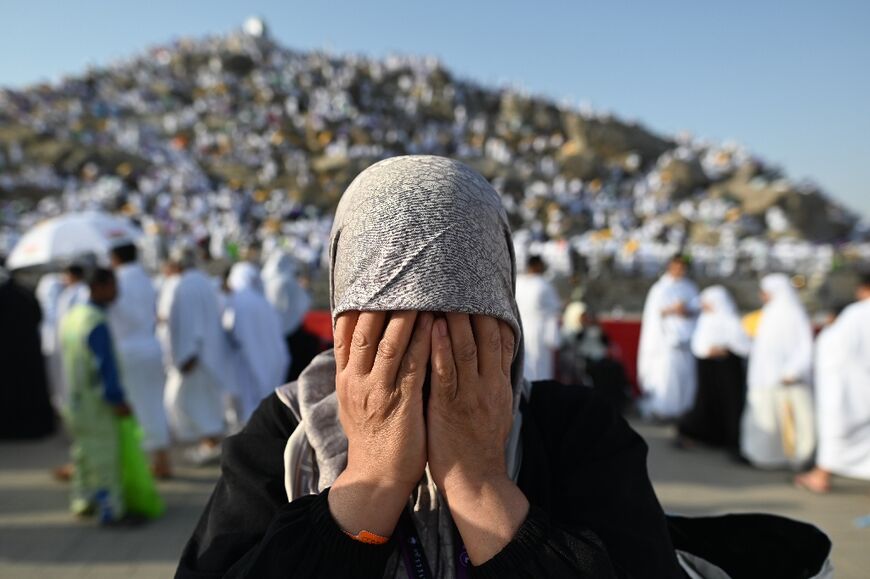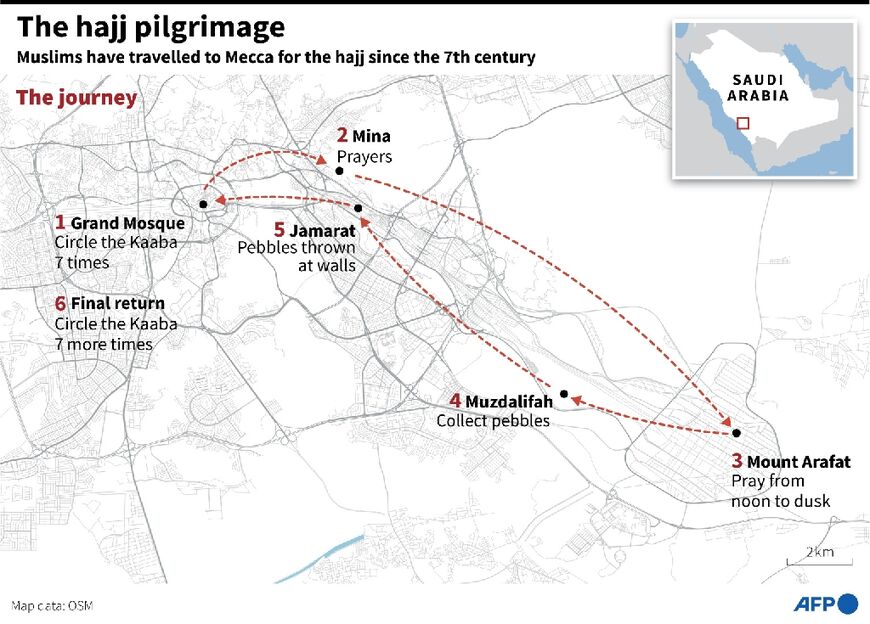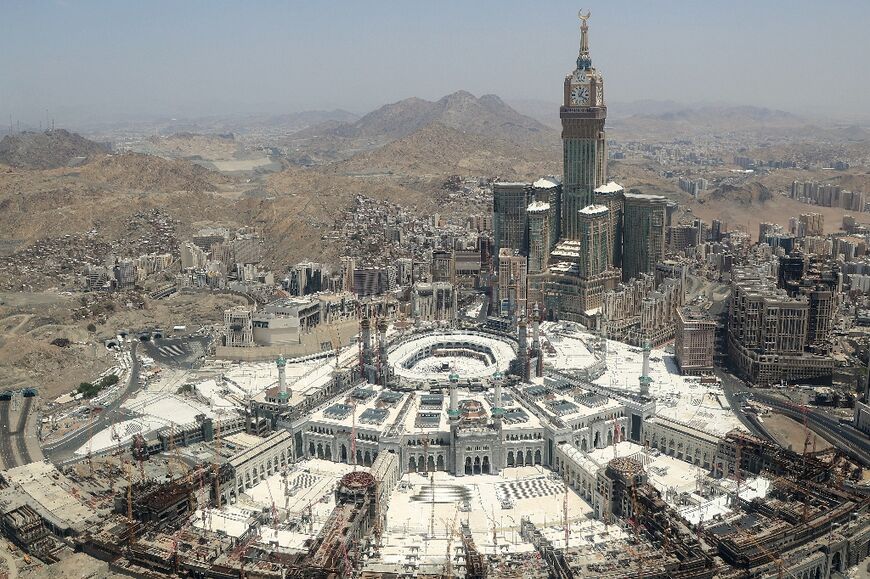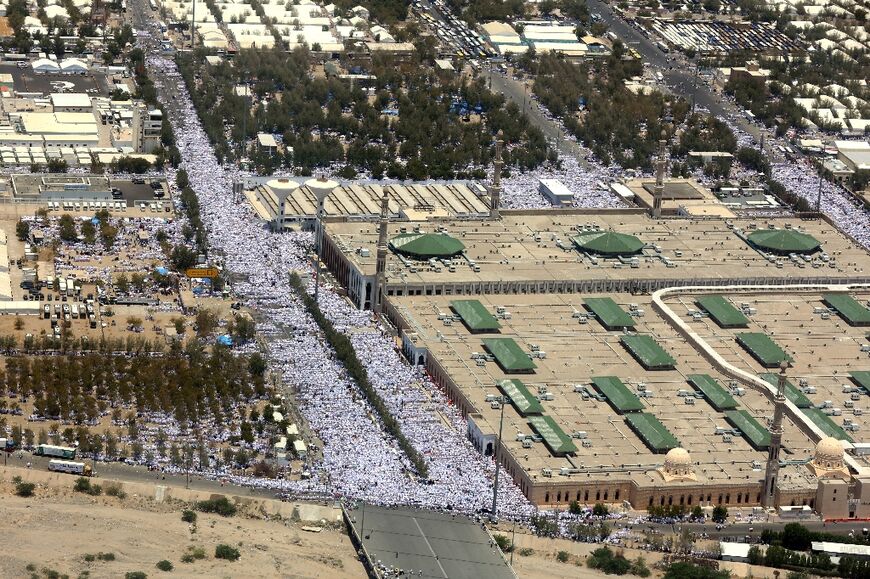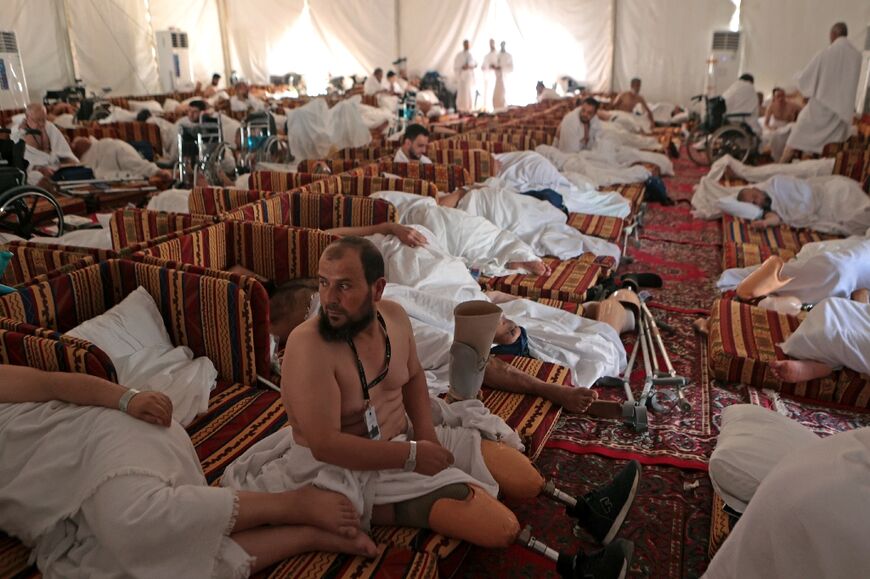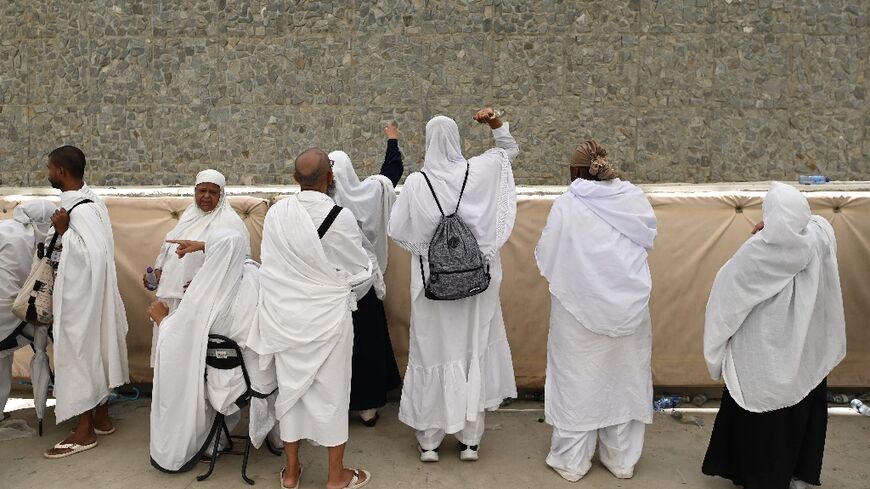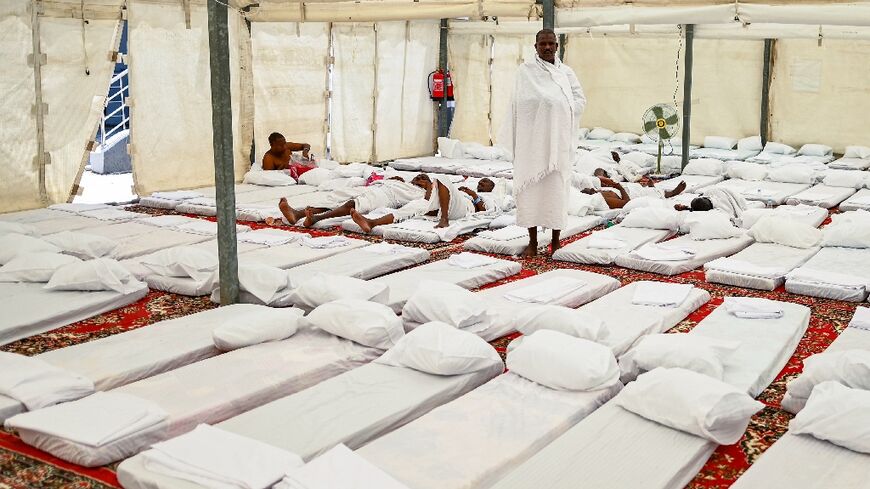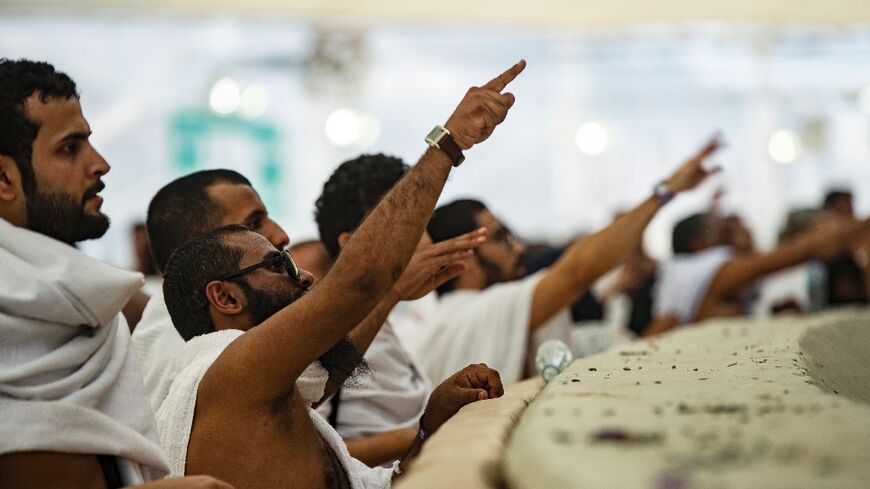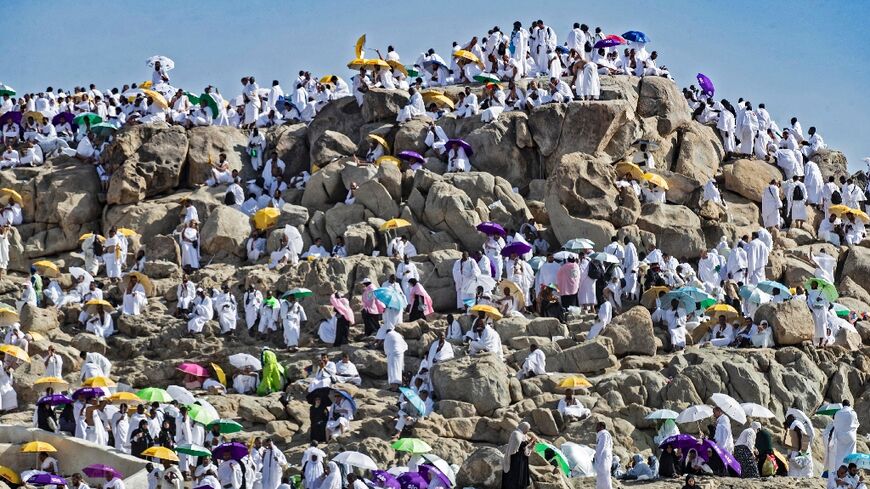Pilgrims ascend Mount Arafat as hajj peaks under fierce sun
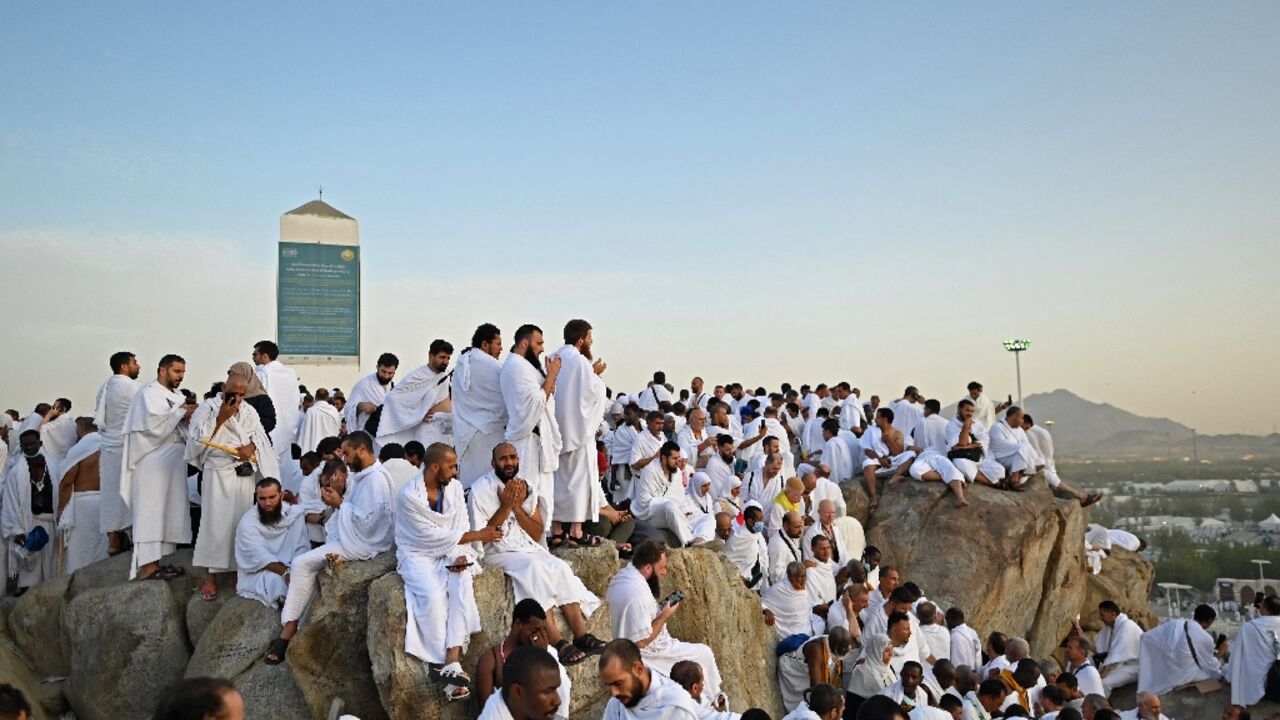
Hundreds of thousands of Muslim pilgrims crowded the rocky rise known as Mount Arafat on Tuesday to pray at the height of an annual hajj pilgrimage held in the fierce Saudi Arabian summer.
As temperatures soared to 48 degrees Celsius (118 Fahrenheit), groups of white-clad worshippers recited Koranic verses on the hill, where the Prophet Mohammed is believed to have given his final sermon.
Some took selfies under the clear burning sky before flocking down Mount Arafat after sunset, heading to nearby Muzdalifah where they will spend the night praying.
"I'm very happy. It's a moment I have been waiting for my entire life," said Fadia Abdallah, 67, from Egypt, wearing a white abaya and sitting on the ground beneath an umbrella.
The ritual at Arafat is the high point of the annual pilgrimage, one of the five pillars of Islam, that Saudi authorities said could be the biggest on record.
But on Tuesday, the kingdom's statistics authority said more than 1.8 pilgrims had joined this year's rituals, making it the largest since the Covid-19 pandemic but still short of the more than 2.5 million that authorities expected.
The figures showed that most worshippers came from abroad to attend one of the world's largest religious gatherings, a source of legitimacy for the oil-rich country's royal rulers.
Saudi Crown Prince Mohammed bin Salman arrived Tuesday in Mina, where pilgrims slept in a city of white tents that spread out across the plain. From the air, it looked as if the land were dusted with snow.
Prince Mohammed arrived to assess the well-being of worshippers and the quality of services provided there, according to the official Saudi Press Agency.
The visit came as temperatures soared to their highest levels since the hajj started on Sunday.
The health ministry has recorded at least 287 cases of heat stroke and exhaustion since the start of hajj, state media said Tuesday.
- Syrian amputees -
High temperatures have been a constant challenge for the pilgrims, who come from around the world, and Tuesday was the hajj's most physically demanding day.
Helicopters hovered low overhead, monitoring crowds at the event which has a tragic history of deadly stampedes and fires.
Tree-shaped water towers sprayed cooling showers on the visitors, who received free water bottles and snacks handed out from large trucks.
Six field hospitals with more than 300 beds have been arranged in Arafat, Yasser Bair, a Saudi defence ministry official, told the state-run Al Ekhbariya TV.
"I can't believe I'm God's guest," said Rahma, a 57-year-old Libyan housewife who asked to be identified only by her first name, fighting back tears as she spoke.
The hajj is a life goal for many Muslims, who are expected to perform the pilgrimage at least once if they are financially and physically capable.
Among the pilgrims are amputees from Syria, who rested, with their artificial limbs beside them, at a tent near Mount Arafat.
The pilgrimage is also a big revenue-earner for Saudi Arabia, the world's largest oil exporter which is trying to diversify its economy, including with tourism.
- Stoning the devil -
On Wednesday, they will gather pebbles and hurl them at three concrete walls in the symbolic "stoning of the devil" ritual.
Then they will return to Mecca's Grand Mosque -- Islam's holiest site -- for a final circumambulation of the Kaaba, the giant black cube that Muslims worldwide pray towards each day.
This year's hajj is the largest since Saudi authorities scrapped a requirement for women to be accompanied by a male guardian in 2021.
At this year's hajj, which follows the lunar calendar and is not always held in summer, a maximum age limit has also been removed, allowing thousands of elderly to attend.
Heat is not the only risk at the pilgrimage, which has seen multiple crises over the years, including militant attacks and deadly fires.
In 2015, a stampede killed up to 2,300 people. There have been no major incidents since.
American engineer Ahmed Ahmadine, 37, said he felt "blessed" to be able to take part.
"I try to focus on praying for my family and friends," he said.
"This is an opportunity that will not be repeated."
